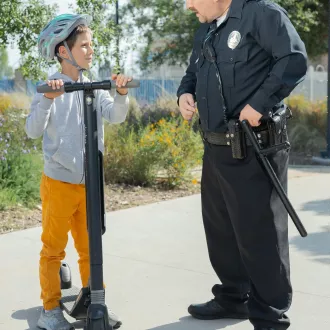Transcription How to foster empathy and understanding of emotions?
To foster empathy and understanding of others' emotions in children, it is important to first understand what emotions are and how they develop in children. Emotions are subjective responses to external and internal stimuli, and are an integral part of our human experience. Emotional development begins in infancy and continues throughout life. Young children have simple emotions such as happiness, sadness, fear and anger, but as they grow older, they develop more complex and subtle emotions such as shame, guilt, envy, pride and empathy.
Empathy is the ability to understand and feel the emotions of others. It is a crucial skill that children need to develop healthy and meaningful relationships with others. Here are some strategies for fostering empathy and understanding of others' emotions in children.
Teach emotional language
Children need to have the right words to express their emotions and understand the emotions of others. Parents and caregivers can teach children words to describe their own emotions and what triggers them. Children can also learn to recognize emotions through facial expressions and body language. It is very easy during the learning process for children to imitate gestures and reactions that they see every day in their familiar environment, so we must also be careful with body language.
Practicing empathy
Parents and caregivers can model empathy towards others so that children learn to recognize the emotions of others. Parents can ask how the child or the other child is feeling in a situation and talk about the feelings of others. They can also help the child imagine how he or she would feel in someone else's situation.
Playing role-playing games
Role-playing is a fun way to teach empathy and understanding of emotions. In this strategy it is very important to involve them in the arts during the game where we expose them to a situation and they act out their role creatively. Music is important for childhood role-playing as it helps them to recreate a personal imaginary and empathic identification. It is important to develop empathy through role-playing that the child plays with other children where empathic exchange and facets of their personality are really exposed.
Direct communication
Direct communication is key to empathy and understanding emotions. Parents and caregivers can encourage open and honest communication and teach children to actively listen. Children should also learn to express their emotions effectively and respectfully.
Books and stories are an excellent way to teach empathy and understanding of emotions. Children can identify with characters in books and learn how emotions can influence people's decisions and actions.
Conflict and diversity
Conflict resolution is an important skill that requires empathy and understanding of emotions. Parents can help children practice conflict resolution by discussing how they feel about a situation and finding solutions together. Children need to learn to appreciate and respect differences in others as we need to teach them that the world is a place for diversity. Another aspect we can teach for better social interaction is generational inclusiveness where we all bring something interesting to the environment.
empathy emotions




